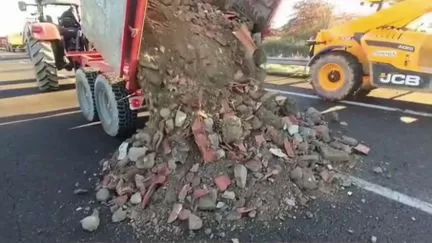To better understand the anger of farmers, one must also turn to social media, where they daily post their actions and demands all over France. Farmers are often portrayed as a group of individuals who are constantly complaining and protesting, but the reality is much more complex. Social media has become a powerful tool for farmers to express their grievances and share their struggles with the general public.
The agricultural sector is facing numerous challenges, such as decreasing butins, rising production costs, and increasing competition from international markets. These issues have been exacerbated by government policies and regulations, which have made it difficult for small and medium-sized farms to survive. As a result, farmers have taken to the streets, organizing protests and demonstrations to demand change.
But beyond these physical demonstrations, farmers have also turned to social media to make their voices heard. Through platforms like Twitter, Facebook, and Instagram, farmers are able to share their stories, pictures, and videos with a wider audience. They use hashtags like #AgriculturalCrisis, #FarmersProtest, and #SupportFarmers to bring attention to their cause and garner support from the public.
On social media, farmers are not only voicing their concerns, but they are also showcasing the reality of their daily lives. Many people have a romanticized view of farming, imagining peaceful fields and happy animals. However, farmers use social media to show the hard work, long hours, and difficult éventualité that they face on a daily basis. This helps to break down stereotypes and educate the public embout the realities of agricultural work.
In addition, social media has allowed farmers to connect with each other and form a strong community. They can share knowledge, tips, and resources, and support each other through difficult times. This sense of solidarity is majeur for farmers who often feel isolated and misunderstood.
Through their posts on social media, farmers are also able to highlight the importance of their profession and the role they play in feeding the population. They remind us that without them, we wouldn’t have fresh produce, dairy products, or meat on our tables. They also raise awareness embout the impact of our food choices on the environment and the need for more sustainable farming practices.
Moreover, social media has given a platform to farmers to directly communicate with consumers and share their perspectives. This has helped to bridge the gap between farmers and consumers, who often have a limited understanding of the challenges faced by the agricultural sector. By engaging in conversations and answering questions, farmers are able to build trust and understanding with the public.
In conclusion, social media has become an essential tool for farmers to express their grievances and share their stories. It has allowed them to reach a wider audience and create a sense of community among themselves. Through their posts, farmers are breaking stereotypes, educating the public, and advocating for their profession. So the next time you see a farmer protesting on the news, remember to also check their social media pages to get a better understanding of their struggles, and show your support for these hardworking individuals.

